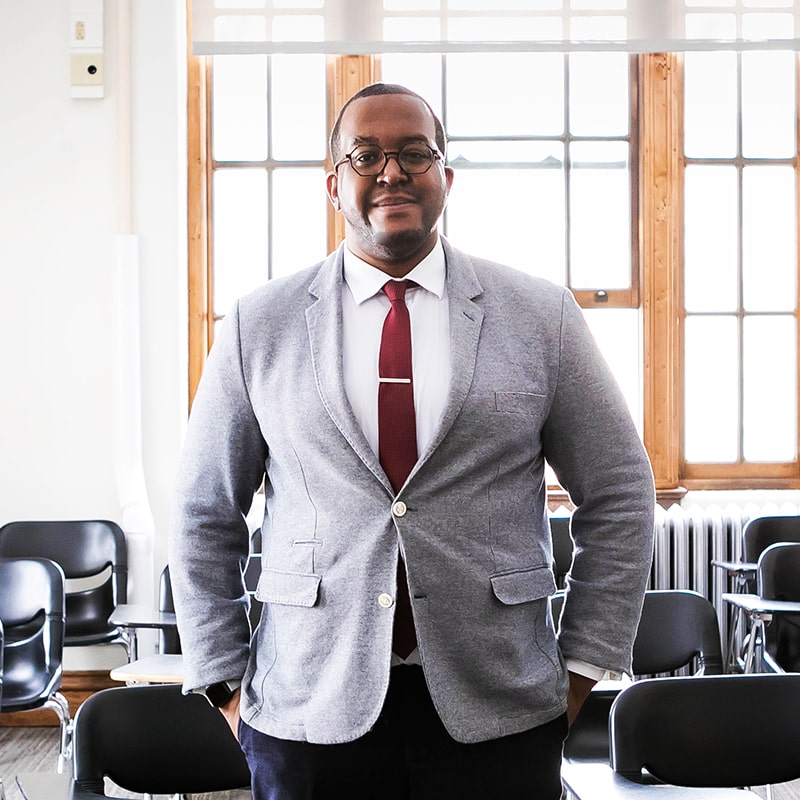Faculty Spotlight: Ezelle Sanford III
By Stacy Kish
Ezelle Sanford III, assistant professor of history, joined the department in 2021. His research lies at the intersection of African American, medical and urban histories. He is working on a book, “Segregated Medicine: How Racial Politics Shaped American Healthcare.” The book examines the legacy of racial segregation that established structures of healthcare inequality through the lens of St. Louis’s Homer G. Phillips Hospital, America’s largest segregated hospital in the mid-twentieth century.
Tell me about your research.
I am a historian who is deeply interested in the role of African Americans in the history of American medicine from emancipation to present. My work explains how and why racial inequality is embedded in the structures of healthcare that was conceived during the Jim Crow era. I am exploring these themes in my book, which follows the history of Homer G. Phillips Hospital from 1937 to 1979. In the 1930s, the Black community in St. Louis lobbied the municipality to create the hospital. Four decades later, new laws to eradicate segregation achieved limited success by integrating white hospitals but unintentionally created a crisis in access to healthcare in urban communities.
How is your scholarly work adding to the greater field?
Part of my scholarship transcends the boundaries of academe. My work is part of a new generation of scholarship to understand and explain the legacy of anti-Black racism in the history of medicine. My work centers on African Americans in St. Louis who were dynamic and pragmatic. Their efforts show how they have played an integral role in the evolution in healthcare to its current state. It is a new evaluation of efforts to desegregate healthcare and its consequences that remain with us in the twenty-first century.
How did you become interested in this topic?
I entered Washington University with the idea that I would study medicine. While in school, I was diagnosed with a vision impairment, which would make it difficult to be a physician. At the same time, I was engaging with undergraduate courses outside of the pre-health program that touched on themes in medicine and health. I began to link health inequalities to people I knew. It put a personal spin on social justice. I changed my major and began to think about health and medicine from the medical humanities.
What are you most excited to accomplish as a faculty member at CMU?
I am most excited about my teaching and my work. It has been such a joy to teach my own course. I really want to build relationships with students and people in the Pittsburgh community. My work explores racism in the structures of American healthcare, which is incredibly important in the shadow of 2020. I am hoping policy makers will read my book and begin to think about how we can structure healthcare so people have unfettered access to it. I am hoping we can begin to address the inequities that are deeply embedded in the structures of the American healthcare system.
What are your goals for the next generation of scholars?
I am amazed by how students apply an intersectional framework to the world with a deep interest and focus on identity, religion, class and sex. I hope that that future generations of scholars can build upon that and point out our blind spots. We need the next generation to keep expanding what we know and what and who are important. We have to operationalize our work and think about how it can be used and applied for a broader world with the aim of justice and equity. I firmly believe that this is part of our mission as scholars, not only to advance our scholarship but to make social change.
The Faculty Spotlight series features new and junior faculty at the Dietrich College of Humanities and Social Sciences at Carnegie Mellon University. Stay tuned for our next installment to learn more about the dynamic and engaging research and scholarly work being conducted in the college.
